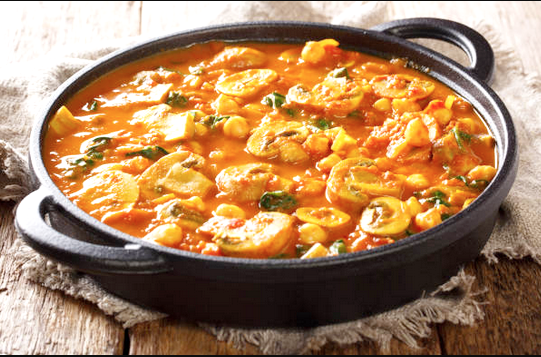
Garlic
Probably one of the healthiest food on earth, it was traditionally used to treat infections, wounds, diarrhea, rheumatism and so on. It is also used widely as a flavoring in cooking.
Usage
Currently, garlic is used as a dietary supplement for many purposes, including high blood cholesterol, high blood pressure, and the common cold, as well as in attempts to prevent cancer and other diseases.
Immunity
Help busts body’s immune system, and can help protect against illness.
Highly Nutritious
A single clove of raw garlic contains magnesium (2%), Vitamin B6 (2%), Vitamin C (1%), Selenium (1%), and Fiber.
Hypertension & Hearth
The active compounds in garlic can reduce blood pressure and improves hearth health.

How to add garlic to your diet?
Fresh garlic
Because of it’s strong taste, used to flavor food.
Garlic powder and oil
Garlic oil may be used topically (applied to the skin) or as a powder.
As a supplement
Garlic dietary supplements are sold as tablets or capsules.
Since the dawn of recorded history, it can be found in ancient medical texts from Egypt, Greece, and Rome highlighting the medical uses of garlic.
In Ancient Rome, Garlic was fed to troops and to sailors for strength.
In Ancient China and Japan was used for digestion and respiration, to provide energy and lift depression.
In Ancient India garlic was used to treat heart disease and arthritis.
Science
A great deal of research has been done on garlic, but much of it consists of small, preliminary, or low-quality studies.
There’s conflicting evidence about whether garlic lowers blood cholesterol levels. If it does, the effect is small, and low-density lipoprotein (LDL) cholesterol (the so-called “bad” cholesterol that’s linked to increased heart disease risk) may not be reduced at all.
Garlic may be helpful for high blood pressure, but the evidence is weak.
Some studies indicate that certain groups of people who eat more garlic may be less likely to develop certain cancers, such as stomach and colon cancers. However, garlic in dietary supplement form has not been shown to help reduce the risk of these cancers. The National Cancer Institute recognizes garlic as one of several vegetables with potential anticancer properties but does not recommend using garlic dietary supplements for cancer prevention.
There’s not enough evidence to show whether garlic is helpful for the common cold.
Safety
Garlic is probably safe for most people in the amounts usually eaten in foods.
Side effects include breath and body odor, heartburn, and upset stomach. These side effects can be more noticeable with raw garlic. Some people have allergic reactions to garlic.
Taking garlic may increase the risk of bleeding. If you take an anticoagulant (blood thinner) such as warfarin (Coumadin) or if you need surgery, tell your health care provider if you’re taking or planning to take garlic dietary supplements.
Garlic has been found to interfere with the effectiveness of some drugs, including saquinavir, a drug used to treat HIV infection.
Sources
Garlic: Is It Good For You? Pros and Cons, Nutrition, and More. https://www.webmd.com/diet/garlic-good-for-you
11 Proven Health Benefits of Garlic, Leech. https://www.healthline.com/nutrition/11-proven-health-benefits-of-garlic
Fun Facts

